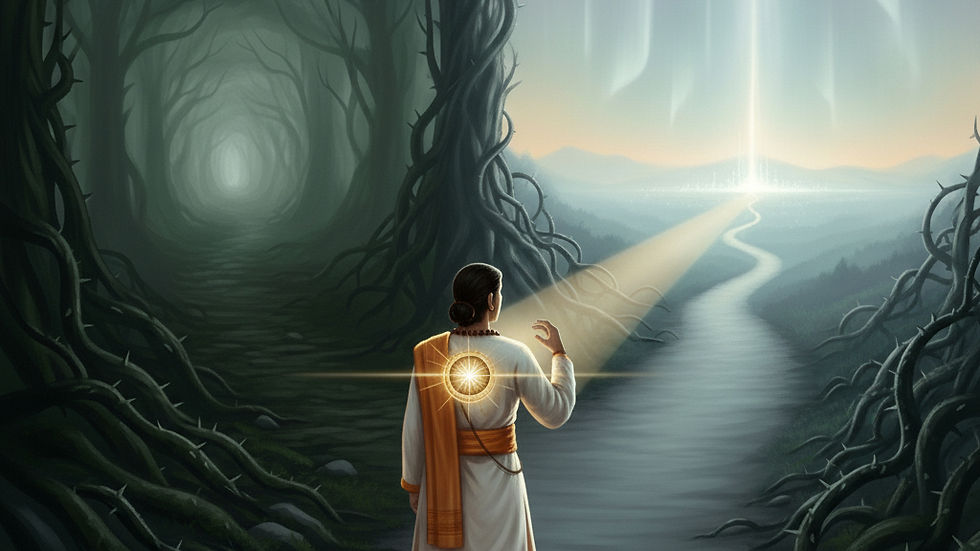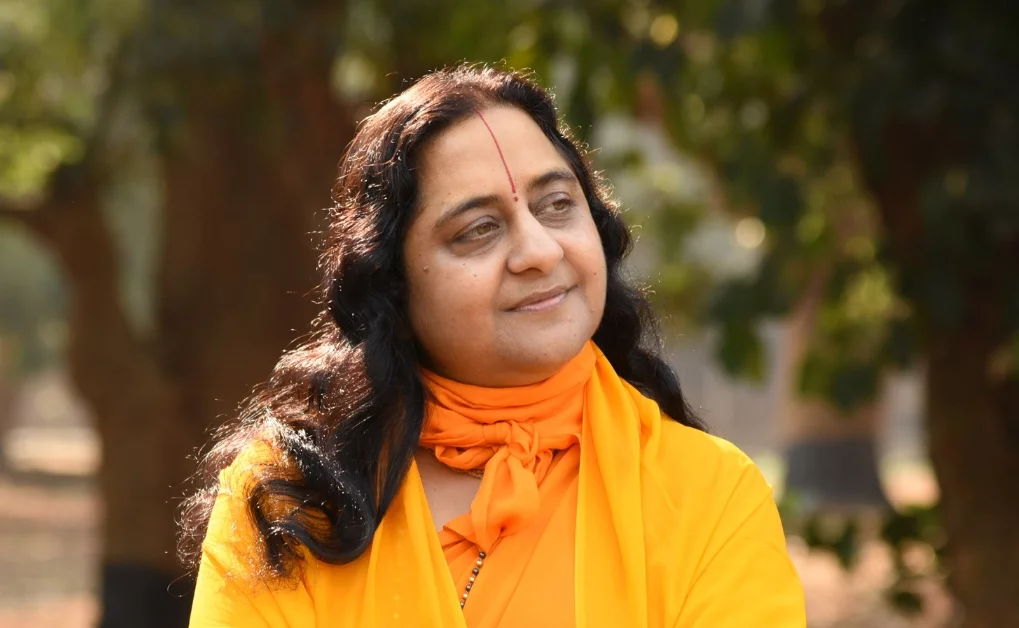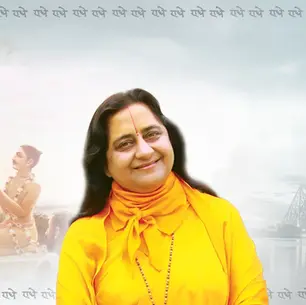The Power to Choose: How Discrimination and Decision-Making Shape Your Destiny
- H.H. Raseshwari Devi Ji

- Sep 4, 2025
- 4 min read
Updated: Sep 6, 2025

Introduction
In the grand journey of life, every moment presents us with choices. Some are trivial, others life-altering. But what guides us in making these decisions? It is our ability to discriminate—Viveka, as termed in the scriptures—that separates the wise from the impulsive, the fulfilled from the regretful. In a world filled with noise, desires, and distractions, developing the power of discrimination and the art of decision-making is not just an asset—it is a spiritual necessity.
Today, as your humble guide, I wish to explore this crucial topic with you. Whether you are a seeker walking the path of devotion or a householder navigating worldly duties, this reflection will offer clarity and courage to choose well and live wisely.
The Role of Discrimination (Viveka):
Discrimination in the spiritual sense doesn’t refer to bias or prejudice. It is the noble ability to distinguish between the real and the unreal, the eternal and the temporary, the right and the wrong. Viveka is your inner compass—it doesn’t just help you understand what is “good” for you but what is true to your essence.
The Bhagavad Gita (2.50) beautifully explains:
“yogah karmasu kaushalam”
“Yoga is skill in action.”
Skill here refers to the power of discrimination. When you act with clarity and wisdom, every choice becomes an act of harmony.
From selecting a career to choosing relationships, from engaging in seva (selfless service) to withdrawing from toxic environments—your life outcomes depend on your ability to evaluate, compare, and align decisions with your dharma (higher purpose).
Decision-Making: The Spiritual Perspective
Decision-making is not merely analytical; it’s profoundly spiritual. Each choice can uplift your consciousness or entangle you further in the web of illusion. In the spiritual tradition, Buddhi (intellect) is the charioteer, guiding the senses (horses) and steering the self (the rider) towards the ultimate destination—liberation.
But what clouds decision-making?
Attachment (Raag)
Aversion (Dvesh)
Delusion (Moha)
Fear of loss or failure
To rise above these, one must cultivate inner stillness through Satsang, meditation, and scriptural reflection. It is in silence that your true discriminative power sharpens.
As the Katha Upanishad (1.3.14) declares:
“Uttishthata Jagrata Prapya Varannibodhata”
“Arise! Awake! And stop not until the goal is reached.”
This clarion call is not just external—it is the soul's reminder to wake up to conscious living.
The Impact of Conscious Decision-Making:
Personal Growth: Clarity in choices nurtures self-confidence and detachment. You live more intentionally, aligned with your values.
Emotional Stability: When decisions come from stillness, you don’t oscillate between regret and pride. You accept outcomes gracefully.
Spiritual Evolution: Every conscious choice inches you closer to your Divine nature. Choosing seva over self-interest, truth over comfort—these build the ladder to transcendence.
Social Harmony: Wise decisions impact not just you but the world around you. You become a source of guidance, compassion, and balance.
Conclusion: The Eternal Power to Choose
Life doesn’t demand perfection in every decision. It invites awareness in every moment. When you cultivate Viveka and choose with spiritual grounding, you don’t just avoid suffering—you co-create joy with the Divine.
Let your life be a series of wise decisions, born not of impulse but insight. For this is how saints are made—not by miracles, but by choosing the higher path, again and again.
As the Mundaka Upanishad (1.2.10) says:
“Dvā suparṇā sayujā sakhāyā…”
Two birds, inseparable companions, sit on the same tree. One eats the sweet fruit, the other watches. Your every action today will bear it’s fruits tomorrow. God is not to blame, he just delivers the results. Since God is watching you all the time, even while you are asleep, make sure that you ponder upon what is the right action to take. You are the writer of your own destiny, despite all the odds you face along the way.
With deep reverence for the seeker within you,
Radhe Radhe,
—Raseshwari Devi Ji
Further Reading:
(Philosophical View: Self-awareness, Emotions, and Moral Reasoning)
“मानव जीवन की नैतिकता और उद्देश्य” (Ethics and Purpose of Human Life)
“मानव जीवन में महत्वकांक्षा का स्थान” (The Role of Ambition in Human Life)
“जीवन का सही उद्देश्य क्या है?” (What Is the True Purpose of Life?)
“स्वार्थ बनाम परमार्थ: एक आत्ममंथन” (Selfishness vs. Selflessness: A Self-Reflection)
“मानव जीवन में विवेक और निर्णय की भूमिका” (Role of Discrimination and Decision-making in Life)
FAQs: Role of Discrimination and Decision-making in Life
Q1: Why is discrimination considered the highest virtue in Vedantic teachings?
Discrimination is the gatekeeper of liberation. Without Viveka, one cannot distinguish between fleeting pleasures and eternal bliss. It is the first step towards renunciation of ignorance.
Q2: How can I make better decisions in everyday life?
Ask: Does this align with my higher goal? Pause before reacting. Engage in prayer or contemplation. Seek guidance from elevated souls. Decision-making improves with self-awareness and spiritual maturity.
Q3: Can overthinking be mistaken for discrimination?
Yes. Overthinking stems from fear or confusion. Discrimination, on the other hand, comes from inner clarity. If the mind feels restless, wait. True discrimination brings peace, not anxiety.
Q4: What role does emotion play in decision-making?
Emotion is energy in motion. It can either cloud or guide depending on its purity. Bhakti (pure devotion) purifies emotion, making your heart a trusted advisor.
Q5: Are wrong decisions spiritually harmful?
Only if we refuse to learn from them. Every mistake is a lesson designed by the Divine. Reflect, repent, and refine. Remember, the Lord walks with the sincere seeker—even in error.





















Comments